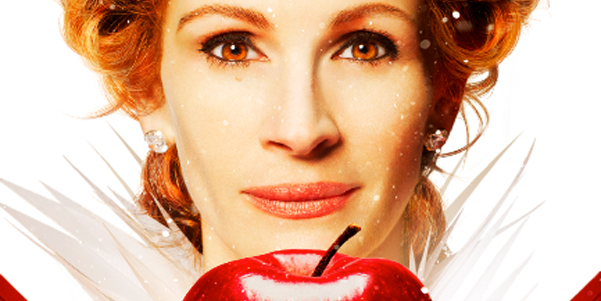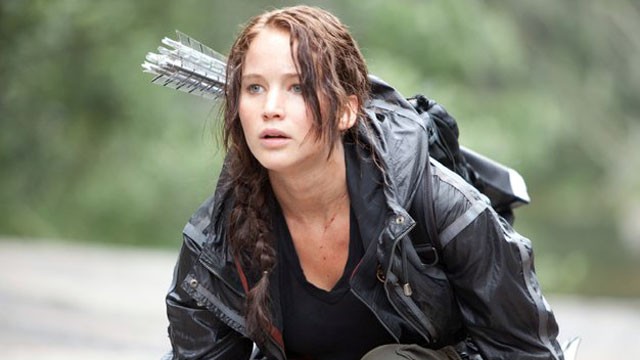If I were in a grumpy “Film Critic” mood I could rip “Mirror Mirror” (the first of two new Snow White movies coming out this year) to shreds. But I dunno, considering this is a kid’s movie (rated PG), it doesn’t really seem fair to nitpick it, comparing it to other Snow White adaptations and finding other complaints not worth fussing about. (Julia Roberts as the evil witch dominating more of the movie than Snow White, for example). It’s sort of like the new Muppets movie; if you’re completely dissatisfied I’d say you went to the wrong movie.
If anything this movie should be seen for the visuals. When I say it’s a children’s movie I mean, with all the visual effects the movie is only a couple notches away from being an animated feature. A lot of warm, inviting and vibrant colors used to keep up with the high metabolisms and short attention spans of children. The director, Tarsem Singh (“The Cell,” “The Fall”) goes the whole nine yards with visual creativity and has considerable skill with the camera, especially in staging scenes that have a lot going on in them, like during a castle ball, with dozens of people complete with excessive hairdo’s, puffy shirts, and massive dresses.
Brendan Galvin’s cinematography is pretty in a syrupy, artificial way. Tom Foden’s production design, the set decoration by Jille Azis and Paul Hotte, as well as the costume design by Ekio Ishioka and the makeup are all so wonderfully extravagant and fantastical that “Mirror Mirror” is almost like being in Candyland for 95 minutes. Over the top? Definitely. And for parents and other adults, it might be a little much, like eating too many pieces of candy but for children it will be a sugar high.
As far as a plot summary goes there’s not much I need to say. Everyone who goes to this will know the story of Snow White. There’s the evil witch (Roberts), who is afraid of her younger sister Snow White (Lily Collins) being more attractive than her; then there’s the charming prince Alcott (Armie Hammer) who takes a liking to Snow White, and the seven dwarfs who Snow White befriends.
And for the most part the screenplay by Melissa Wallack and Jason Keller follows the original story, except for a few changes, mostly for modern or comedic reasons. Such as the names of the dwarfs being changed. They’re now known as Napoleon, Half Pint, Grub, Grimm, Wolf, Butcher and Chuckles, and instead of jolly mine workers they front as bandits. I guess mining jobs in Candyland--much like in the real world--are on the way out.
Even though most of the gags are meant for kids I appreciated the times when Wallack and Keller would slip in subtle “wink wink!” adult jokes, like when the queen’s aid played by Nathan Lane is turned into a cockroach and when he turns back he talks about how a “Grasshopper took advantage of him” (that’s right, a rape joke). This gives the adults some delight and reason to not completely check out. On top of that it shows that the filmmakers are aware of the silliness of their movie.
The acting ranges from wooden to earnest and enthusiastic, both are acceptable for children’s movies. You can tell Roberts is having a fun time playing the witch, adding a bit of sass in addition to her evilness. It’s always more fun to play a villain. Collins does the best she can even though she has the somewhat dull task of playing the goodie-goodie princess and I give Hammer credit for being as animated as he is.
“Mirror Mirror” won’t be for everyone. Teenagers should stay far away, along with anyone else not associated with young children. The movie isn’t perfect, and it might be better to just show your kids the classic Disney animated film instead, but there is never a moment in it where it’s flat out unwatchable, even during some of the really childish jokes (the Queen mistakenly gives Prince Alcott a Puppy Love potion as opposed to a Love potion and he ends up acting like a dog). And even those are all in good campy fun.
That’s a good way to sum up “Mirror Mirror” as a whole: good, corny, childish fun.
2.5/4





